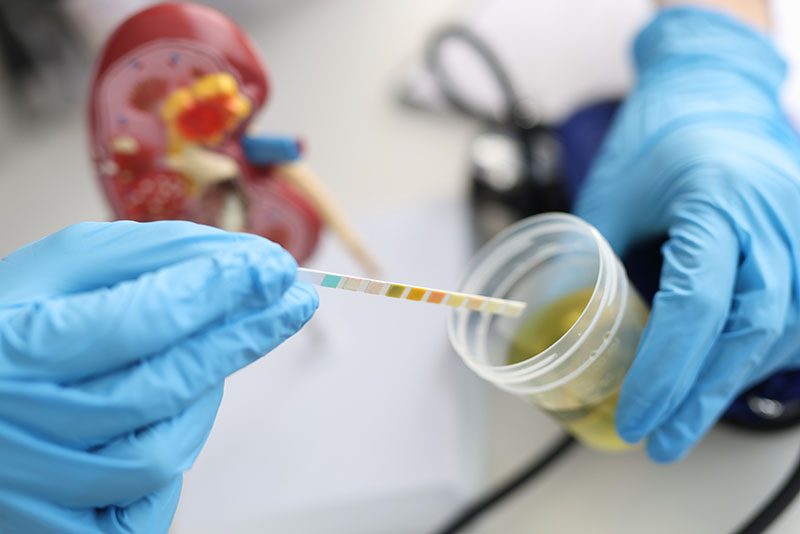
Diabetes Kidney Disease Is a Serious Complication
A diagnosis of Type 2 diabetes can result in multiple health issues. Topping off the list is kidney disease, or what is referred to as diabetic nephropathy.
Diabetic nephropathy is the result of high blood sugar. Your kidneys go into overdrive because they constantly need to remove excess glucose from your body. As a result, the nephrons of your kidneys - or the filtering units - become inflamed and no longer function as they should.
Stages of Kidney Disease
Kidney disease often has no symptoms at first. Someone may have kidney disease for a decade or more before any signs or symptoms appear. If you have diabetes, it's essential to have your kidneys checked regularly through blood and urine samples. Doctors will look for traces of a protein called microalbumin in your urine as the first indicator of kidney disease. If your doctors identify more significant amounts of protein in your urine, it's known as macroalbuminuria or proteinuria. Typically, your body absorbs this protein; when you have diabetic kidney disease, however, the protein is excreted through your urine.

If left unchecked, kidney disease progresses and, in some cases, can cause the kidneys to stop working altogether. By the time symptoms appear, as much as 80% of kidney function may already be lost, which is why early detection is so important.
Someone with advanced kidney disease may experience various uncomfortable symptoms, including:
- Swelling in lower extremities
- Itching
- Muscle cramps
- Nausea and vomiting
- Loss of appetite
- Trouble breathing or sleeping
- Confusion
- Seizures
It's Not Just Your Kidneys
Patients diagnosed with diabetic neuropathy are at risk for many complications affecting other parts of the body. For example, the fluid retention you may experience could result in fluid in your lungs, a condition known as pulmonary edema. You could also develop cardiovascular disease, which could lead to a life-threatening stroke, or diabetic retinopathy, which is damage to the blood vessels of the eye.
Other complications include foot sores, erectile dysfunction, diarrhea, anemia, or reduction of healthy blood cells. Red blood cells transport oxygen from your lungs to your body's tissues.

How to Prevent and Manage Diabetic Kidney Disease
If you have diabetes, you can take a few steps to prevent diabetic neuropathy. These steps will help you manage your condition appropriately if you have already been diagnosed.
Stay on top of your diabetes
Check in with your physician regularly so they can monitor your blood sugar levels, including your A1C, a blood test that measures your sugars for an average of three months.
Watch your weight
If you are at a healthy weight, take steps to maintain it by exercising most days of the week. If you are overweight, speak to your doctor about weight-loss strategies, including a physical activity regime and a low-fat, low-calorie diet.
Quit smoking
If you smoke, consider quitting. Research has shown that cigarette smoke can ravish your kidneys; if your kidneys are already damaged, smoking can worsen your condition. Talk to your doctor about different options, including support groups, counseling, and medications.
Watch your blood pressure
High blood pressure is directly linked to the development of kidney disease. Patients who have diabetes often end up with high blood pressure. Watch your stress level, take your medications as prescribed, and watch your salt intake. It is also a good idea to regularly check your blood pressure at home.
Get plenty of shut-eye
We already know that sleep is essential to our well-being. Researchers have discovered that our circadian rhythms (sleep-wake cycles) regulate kidney function. It's been shown that people who sleep less may experience an increased rate of kidney dysfunction. To combat this, ensure you get seven to eight hours of restful sleep each night.
Having diabetes has its challenges and can be an overwhelming road to navigate. However, by working with your doctor and making lifestyle adjustments, you can prevent the development of kidney neuropathy or effectively control it.








